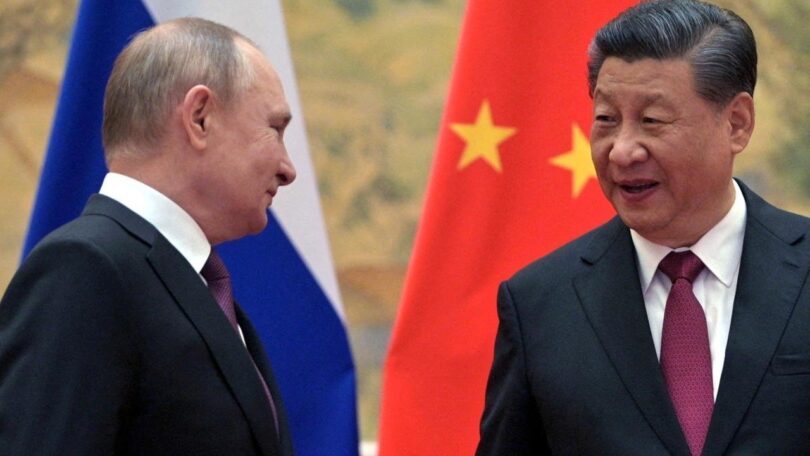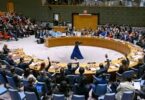Chinese President Xi Jinping met his Russian counterpart President Vladimir Putin in Moscow during his first visit to Russia since Russia launched its so-called Special operation in Ukraine. Both leaders greeted each other as dear friends and sought to deepen their bilateral economic ties as a useful counterweight to the Western animosity toward them. Putin told Xi that he views Beijing’s proposals for a negotiated solution to the Ukraine conflict with respect and admires China’s rapid economic growth in recent decades. Chinese Strongman reciprocated similar views regarding Russia and expressed good faith in a future partnership between the two nations.
The landmark and momentous diplomatic maneuver of the top Chinese leader came at a very crucial movement in Global politics and an utmost frenzy geostrategic environment in the region and beyond. The war in Ukraine is in full swing, with no distinct achievement by either side, and no end in sight despite massive economic, military, and human losses of belligerent nations over the past more than one year. Ahead of Xi’s arrival in Moscow, the International Criminal Court (ICC) issued an arrest warrant for his host and dear friend Vladimir Putin over the alleged deportation of Ukrainian children to Russia during the war in Ukraine. Thus the situation became more delicate for Beijing to play its proposed role of a peace broker as Kiyv and its western allies accused China of backing Russian aggression against its weak neighbor.
Apparently, President Xi Jinping has transformed China’s role from an Economic influencer to global diplomacy mobilizer and peace broker after securing the Chinese Presidency for a consecutive third term. Earlier Beijing facilitated the peace deal between Saudi Arabia and Iran, successfully bridged the gap between the two staunch rivals, and channelized its economic and political influence in the broader Middle East region. Currently, President Xi set the stage for its newest diplomatic outreach to resolve the years-long conflict in Ukraine and to make face-saving for his dear friend who had been trapped in teeth grinding battle, an acute diplomatic and economic isolation after igniting conflict with his neighbor. Recently, China has presented a broad 12-point proposal to solve the Ukraine crisis that will be negotiated between the two heads of state during their next meetings during the ongoing visit.
The Ukrainian conflict has become the center stage of the global rivalry between the United States and its competitors. Meanwhile, the warring sides are satisfying their hostility in the neighbor’s backyard and innocent Ukrainians are paying price for it. There is no military solution to the Ukraine issue and belligerent nations would have finally come to the negotiating table to end this conflict. In the present scenario of mistrust and animosity, Turkey and China are the two peace brokers who can seize a win-win peace deal that sufficiently address the concerns of the combatant nations and ensure peace and stability in the war-hit region.
Presently, Beijing perceives itself as a key proponent for the peaceful resolution of the Ukraine conflict, while its global stature, nonpartisan position in the Ukraine conflict, and good terms with Moscow could significantly mold Putin’s intolerant position over the Ukraine issue if western nations do not manipulate the situation on political reasons. At the same time, China needs to play an unbiased and apolitical role to prove the sustainability and effectiveness of its diplomatic outreach.
In fact, China’s economic and peace diplomacy has opened up new avenues of cooperation, and bright chances of CPEC extension and the formation of an economic bloc encompassing the whole of western, South, and East Asia have emerged after the Saudi-Iran deal. The Chinese leaders must implement this doctrine on the ground to maximize the dividends of President Xi’s Belt and Road Initiative (BRI) that will not only revive the regional economies but also ensure peace and prosperity in entire Asia.







